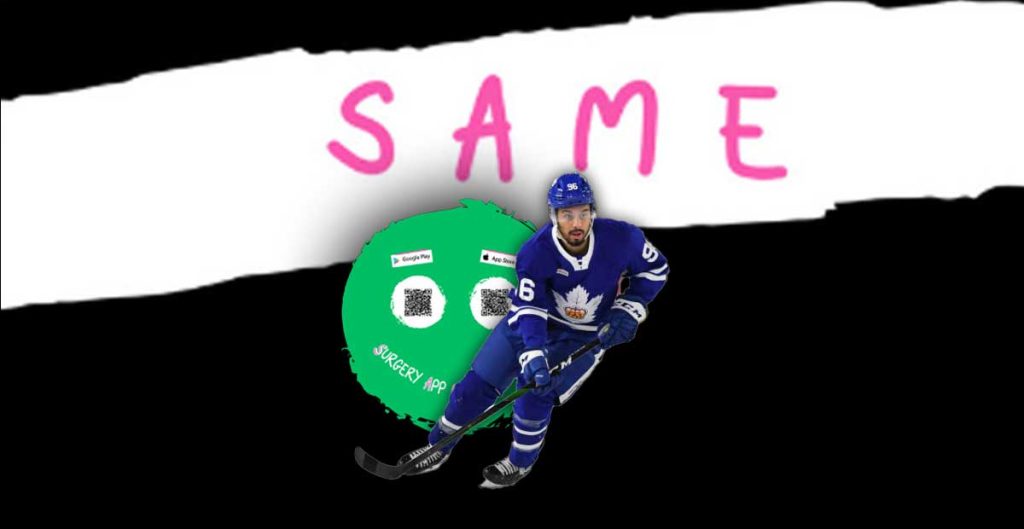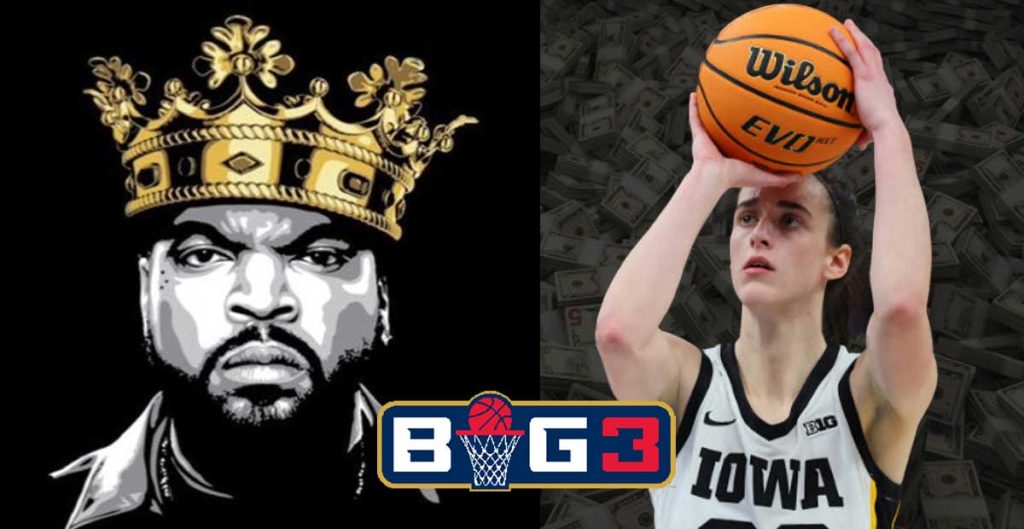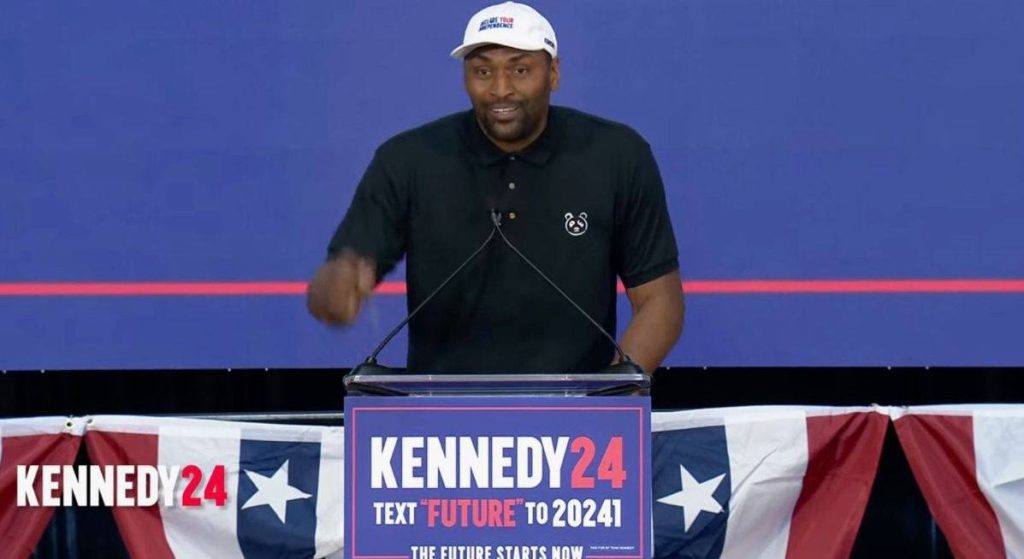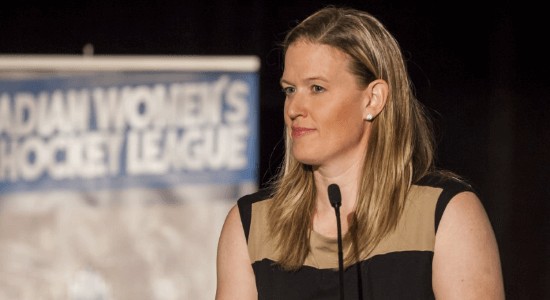
Women’s Hockey Legend Sami Jo Small Continues To Empower Audiences In Retirement From Playing
Sami Jo Small | Motivational Speaker | Sami Jo Small Consulting

The game is bigger than it’s ever been, more young females are getting that chance to play, and more and more females are coming into or back to the game as adults.
Sami Jo Small
Motivational Speaker
Sami Jo Small Consulting
Tell us about what roles you are currently taking on at this time in your career.
Currently, I’m working full-time as a professional speaker giving keynote addresses about the importance of teamwork.
I try to leave audiences empowered to build better teams and be more empathetic team members willing to put the work and effort in to ensure the success of the team.
As one of only a few “Certified Speaking Professionals”, the highest earned designation for a speaker in North America, I use many stories from my Olympic experiences and the athletic world.
In addition to speaking, I do various different consulting work with companies, associations and organizations, helping them to build stronger teams.
Also, I volunteer my time with a few select charities donating my time in various ways. They include, Right To Play, Fast and Female and Canadian Athletes Now amongst others.
Besides being a speaker, I also own a hockey school that runs in the summers in Manitoba and Ontario. I’ve been running that for 22 years with the help of some great instructors. A passion project for me, it’s a great way to give back to the community that has given me so much.
Lastly, I am a full-time Mom to a 4-year-old.
What does a typical day look like for you? It’s hard to imagine your daily grind with all that you are involved in!
Every day is a bit different depending on my speaking engagements. I do between 50-70 engagements per year which means I’m on a plane 2-3 times in a month. I can usually fly in and fly out the same day or the next day. If I have to be away from the house, I am fortunate that my 5-time Paralympic husband can usually take over at home, however, for the most part, I work from home.
The days I’m at home I usually carve out some time for emails and calls during the day but do most of my work after my daughter has gone to sleep. It’s an incredible job that allows for family time, flexibility to travel to watch my husband play and plenty of personal fulfillment through all the great people I get to meet at events.
I also try to stay fit and active, working out at the gym and participating in recreational hockey which still gives me great joy.
While my days are busy, it’s mostly fun-busy and nothing I do really seems like work. I feel very fortunate to have the job I do.

When was the point you realized that you were meant to do this career? Take us through that realization.
When I first joined the National team, we were forced to participate in many events within communities where we were playing. Many of my teammates hated speaking in front of large crowds, but I loved it and hence was often the spokesperson for the team.
I didn’t know that speaking could be a full-time profession until I was nearing the end of my tenure on the National Team. With an engineering degree from Stanford, I assumed I’d likely work in that industry, but realized that I could get paid to speak so deferred getting a “real” job until I stopped getting paid to share my stories.
That was nearly 20 years ago and I’ve loved being able to merge my expertise building teams, with my love of travel and meeting new people.
While this might not seem like the traditional “career in sport”, I am talking about sports teams all day, every day. I’m gaining insights from prominent business leaders and coaches to share while delving into the psychology of the elite athlete to help individuals succeed in their workplace environment.
Because of my job in speaking and skills gained on the platform, I have been lucky to have had many other “jobs” that have morphed out of opportunities that have been presented.
From being a co-founder of the Canadian Women’s Hockey League and it’s first vice-chairman and sponsorship chair, to becoming a general manager of women’s professional hockey team these positions would not have been possible had I not been comfortable sharing ideas with people and having the ability to take input and insights from leaders in the community.
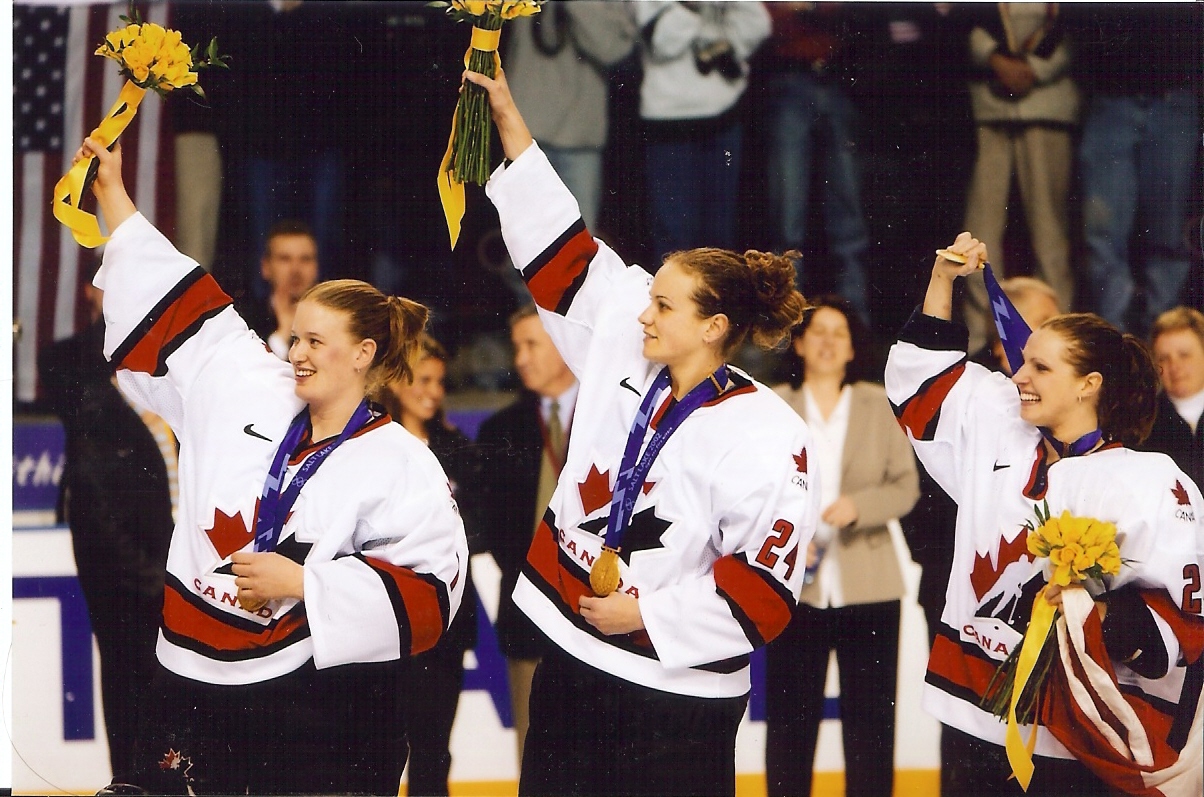
Would you say your path to your current position was quite easy or rather challenging, and can you discuss why?
I would say that to become a “Certified Speaking Professional” requires a lot of work, but most of it is not difficult work. Being a good speaking requires constant practice and analysis, similar to being an elite athlete. It also requires a daily inner-confidence that has to also be honed in order to perform on stage and in meetings.
However, I am usually fortunate that once I am on stage, audiences are happy and excited to hear stories about my Olympic experiences and insights into one of the world’s most successful teams.
I would say that the most challenging situations I’ve been confronted with, is hiring and firing. Both as a speaker, as a hockey school owner and most importantly in my roles in sport management.
As a GM, my toughest day was always the “final cuts”. Having to tell someone their dream is over, is gut-wrenching, however, it’s helped me to understand better the trials and tribulations of being in management in the corporate world. The mix of emotion, humanity and the realities of the job are what make all of us connected.
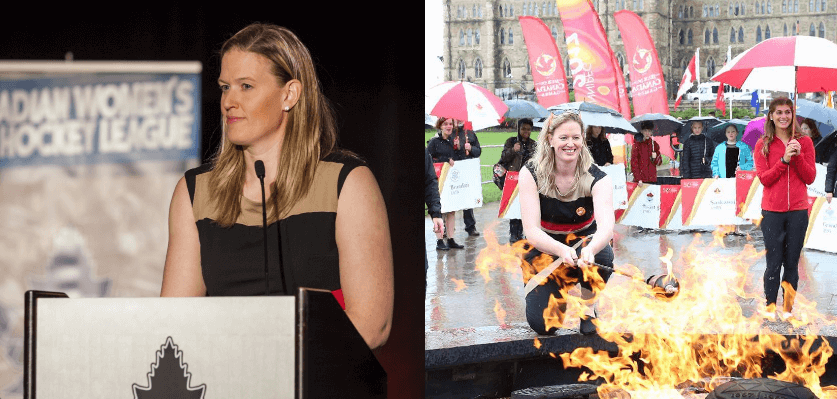
What is something people don’t realize about working in the sports industry?
I think that many people forget that people often choose to work in sport because they love sports.
Often we get so engrossed in the job, we forget that sport, despite being a big business, is ultimately about play.
The individuals that I encounter with the highest job-satisfaction are the ones that are still able to embrace what sport meant to them as a child.
Able to embrace, the creativity, the joy and the fun.
How did you make the transition from being an athlete to the roles that you now have?
I have never not seen myself as an athlete. Even now, while the crowds now only include friends and family, I still love to participate. However, each of my “jobs” has grown organically through opportunities that have arisen.
- Speaking: I decided to join CAPS, the Canadian Association of Professional Speakers in 2006 after my 3rd Olympic games when I read the book by Tim Ferris, “The 4 Hour Work Week”. In it, he talks about whatever profession you aspire to be in, join your local association to find other like-minded individuals. This was transformational for me because I realized that I could make a living as a speaker and that I suddenly had thousands of peers I could go to for advice.
- Hockey School Owner: After my first Olympics in ’98 in Nagano, I decided I wanted to give to my local women’s hockey community in Winnipeg, MB. There was nothing for girls or women in the province where they could go and see other girls playing. So what started as a small camp has grown into the Sami Jo Small Female Hockey School that at one time was running all summer throughout 4 provinces. Now I simply run two weeks in the summer. One, still in my hometown of Winnipeg for 120 girls ages 7-17 and one in Oakville, ON for female goalies where we have 60 female hockey goalies every year.
- Sports Administrator: When the old NWHL collapsed in 2007, I had both the time and passion to help start something that would help fill the void. Thanks to a lot of help by some amazing individuals we were able to get up and running that first season on a budget of $350,000 for a 7 team league. Fast forward to 2017 and the CWHL was running on a budget of 3.5 million with 6 teams throughout North America and one in China. I sat on the board for 6 years and my portfolio included raising sponsorship dollars. While I had no background in sports admin or sponsorship, I took a course through the Sport and Marketing Council of Canada and tried to always do what was best for the growth of the sport. I continued to play professional hockey until the age of 42. When I was relegated to third goalie status more that I wanted, there was an opening as GM of my team and I jumped at the opportunity. It was a chance to make a difference within our organization in new and exciting ways.
- Mom: As every Mom will attest, having a baby changes life’s priorities. The ride has been challenging, tiring, enthralling, fulfilling and the best job of my life.
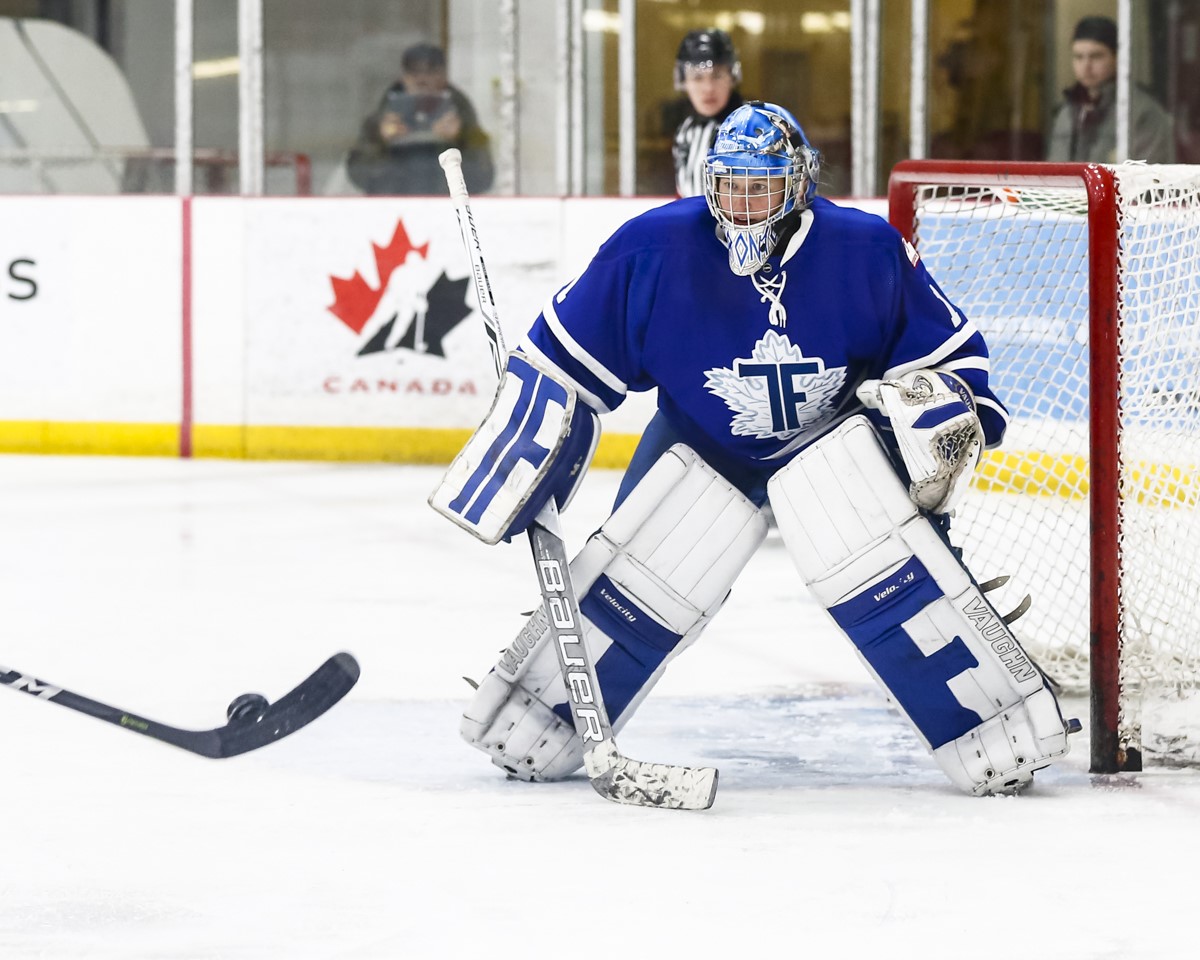
Tell us what you think the future of women’s hockey looks like?
I think there are many great things awaiting the future of our game. I remain optimistic that the “sides” within elite women’s hockey will come together in open dialogue. The product is incredible, the athletes are very skills and great ambassadors within their communities and the growth of the game has been exponential at the minor hockey levels.
Within the game, we are doing many great things and I choose to see the positives rather than focus on the negatives. The game is bigger than it’s ever been, more young females are getting that chance to play, and more and more females are coming into or back to the game as adults. There are many excellent people working within the sport to continue its growth. As society shifts so too do women’s sport and I am excited for what the future will hold.
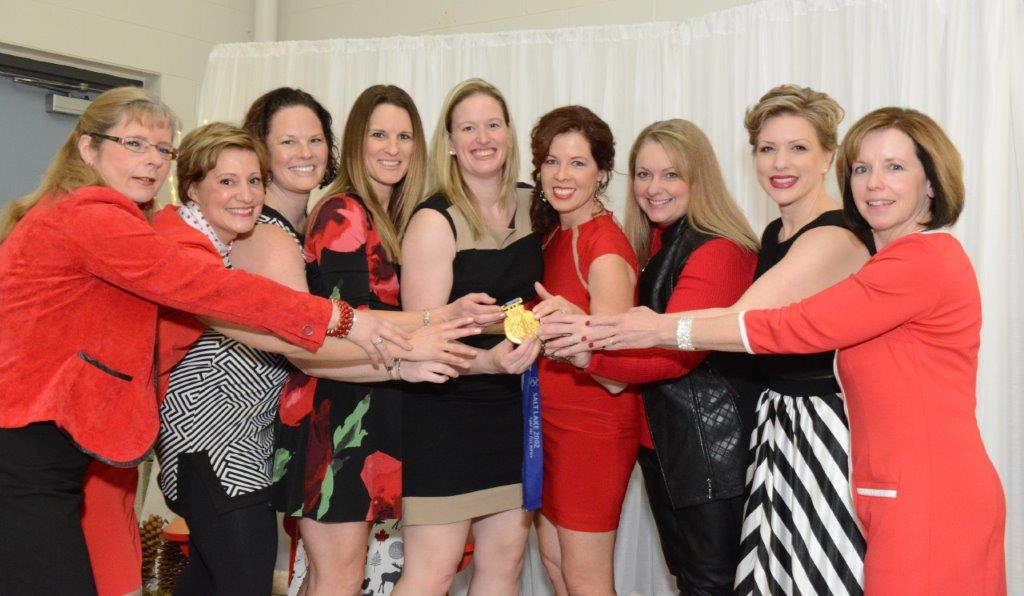
What skills and knowledge did you develop as an athlete that you have transferred to your career?
I have always said, “Sport is not life, but it can teach us a lot about life.”
Sport gives us so many teachable moments that allow us to grow as individuals.
From learning how to practice and train, to how to be a good teammate, sport gives us the framework to work through many issues before having to execute the lesson in our “real lives.”
[get_current_post_author_pic_and_name]
At this point in Sami Jo Small’s career, she’s become incredibly busy. From her speaking endeavours to the consulting work she does to running her own hockey school and being a full-time mom, Sami Jo Small is taking on a lot! Despite the busyness, Sami’s days are fun-busy and the work she does is continually rewarding. It’s incredible being able to witness Sami Jo Small promote women’s hockey and uplift audiences through her athletic experiences, especially since the advice is coming from a women’s hockey legend herself! Women’s hockey is consistently growing and we have Sami to thank for this!
The Latest




